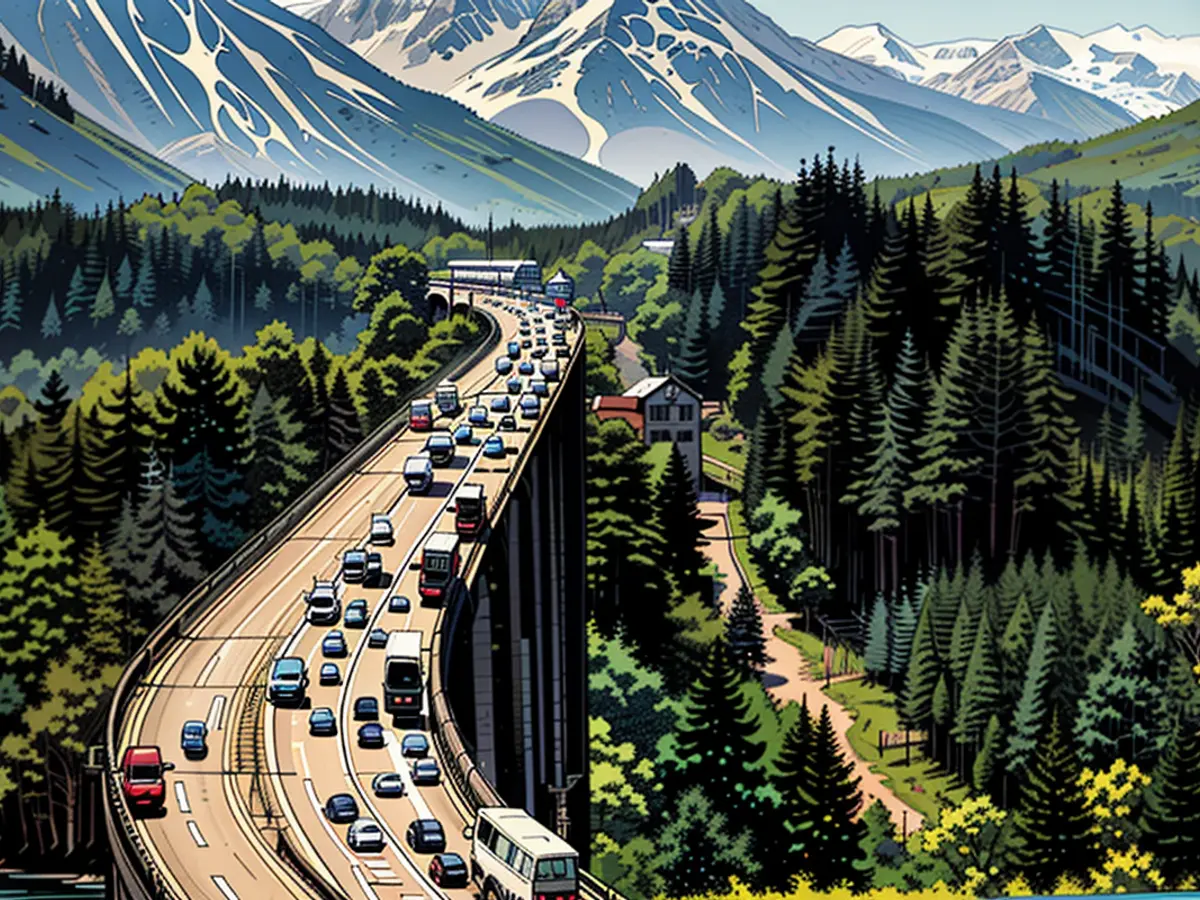Call for relaxations - Bayern and South Tyrol criticize night driving ban at Brenner
In dispute over the Brenner-Transit, Bavaria and South Tyrol call for relaxations of the existing night driving ban for heavy goods vehicles at the Brenner. "Our joint plans for digital transport management in the form of a slot system can only succeed if Tirol finally takes action regarding the night driving ban," said Bavaria's Transport Minister Christian Bernreiter (CSU) in Munich.
South Tyrol's Mobility Councillor Daniel Alfreider also criticized the representatives from Tirol for the stalled negotiations. "Our proposal for digital transport management had the main goal of a corridor policy for all three countries," said Alfreider. With the national states barely moving, regional cooperation is all the more important, "because we are closer to the needs of the people on site and know the safety and environmental aspects precisely," he added.
Heavy goods traffic over the Brenner motorway has been a contentious issue for years and regularly causes numerous traffic jams in the affected regions. The renovation of the Lueg bridge, over which the A13 motorway in Tirol runs, causes additional bottlenecks. Since January, it has only been single-lane traffic, and the renovation is reportedly expected to begin in the spring of 2025 and last until 2030.
"Such lengthy projects also have effects on us as neighboring regions. Sadly, we only learn about what is being planned and its consequences from the newspaper and third parties," said Bernreiter. Tirol must significantly improve its information policy, as only common solutions can be achieved if everyone is pulling in the same direction. "I regret that I currently see a lack of willingness on the part of Tirol to do this."
Bavaria and South Tyrol emphasized that they wanted to maintain the good dialogue and also push forward the plans for digital transport management (Slot System). "Even if a solution without the national states is not possible here, Bavaria – South Tyrol – Tirol must continue to hold together to enable the best possible result for the people in the three regions," it was stated.
In response to the issue, Christian Bernreiter, the Transport Minister from Austria's Bavaria, highlighted the need for Tirol to address the night driving ban impediment in their joint plans for digital transport management, known as the slot system. The proposal for digital transport management by South Tyrol aimed to establish a corridor policy benefiting all three countries: Bavaria, South Tyrol, and Tirol in Italy. Heavy goods traffic over the Brenner motorway, which passes through Tirol, has been a longstanding issue, often resulting in significant traffic congestions. The renovation of the Lueg bridge in Tirol, leading to single-lane traffic and a projected lengthy renovation period from 2025 to 2030, further exacerbates the existing problems. Unfortunately, Berreiter noted that information about such projects and their consequences were only disseminated through the media, casting doubt on Tirol's information policy and its commitment to collaborative problem-solving.








